PsychNewsDaily Publishers
100 Summit Drive
Burlington, MA, 01803
Telephone: (320) 349-2484
PsychNewsDaily Publishers
100 Summit Drive
Burlington, MA, 01803
Telephone: (320) 349-2484
Insufficient recovery after workouts leads to fatigue, decreased performance, persistent soreness, mood swings, and increased illness, impacting overall fitness and long-term health. Prioritize rest and nutrition.

Many people emphasize the importance of exercise, but ensuring that the body has enough time to recover is equally important. Recognizing the signs that indicate insufficient recovery can help avoid injuries and improve overall performance. Without proper rest, the body struggles to repair itself, leading to fatigue and a decrease in motivation.

The body communicates its needs through various signals. When someone is not getting adequate recovery, they may experience persistent soreness, decreased performance, and even changes in mood. Understanding these signs is crucial for anyone looking to maintain a healthy workout routine and achieve their fitness goals.

Feeling tired even after getting enough sleep can be a clear sign of not recovering well. This persistent fatigue may show that the body is not healing properly from workouts.
When someone trains hard, their muscles need time to repair. If they ignore recovery, the body can feel worn out. This means they might struggle to perform at their best in future workouts.
Other factors might add to this tiredness. Poor nutrition or stress can also play a role in how the body feels. It’s important for anyone experiencing this fatigue to check their recovery routine.
Taking steps like adding rest days or focusing on nutrition can help. Listening to the body’s signals is key for anyone wanting to improve their fitness.
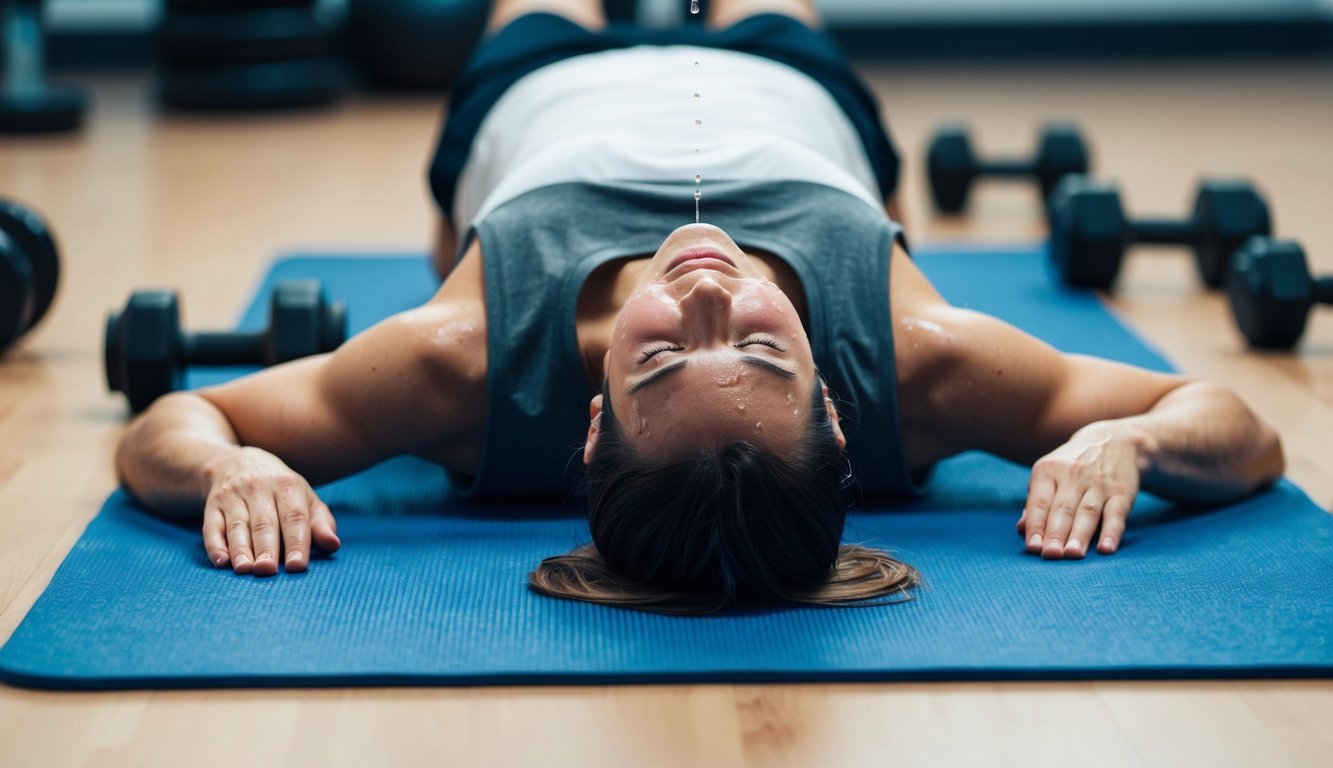
When someone feels less excited about their workouts, it can be a sign they aren’t recovering well. Enthusiasm is key to staying motivated and engaged in fitness routines.
If a person usually looks forward to exercising but suddenly feels indifferent, they might be pushing too hard. This lack of energy or drive can also indicate that their body needs more rest.
Feeling bored or unmotivated can also come from not getting enough recovery. When muscles are tired, the fun of working out can fade away. It’s important to listen to these feelings and consider taking a break.
Resting more can help restore excitement for workouts. A balanced approach to training and recovery can bring back motivation and make exercise enjoyable again.
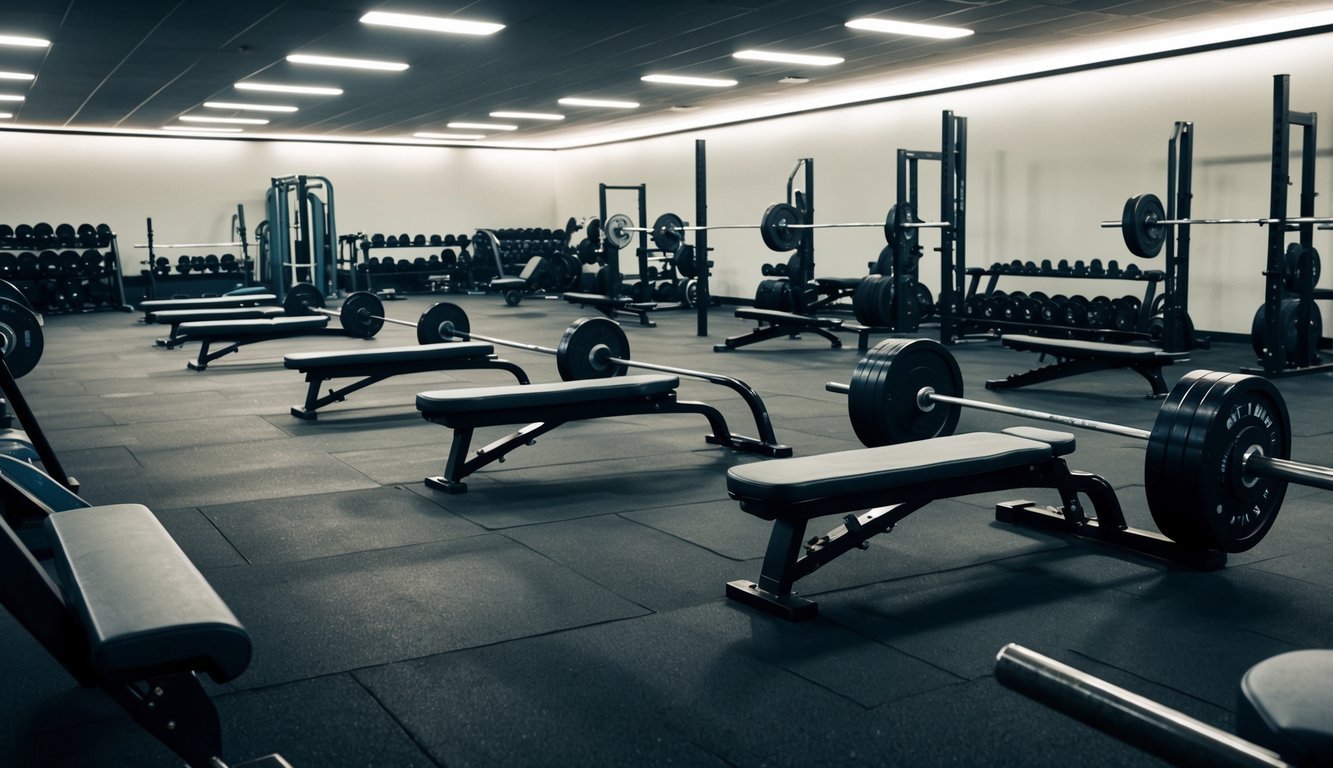
Experiencing muscle soreness for more than 72 hours may be a sign of inadequate recovery. While some soreness after a workout is normal, soreness lasting too long can indicate problems.
This delayed soreness, known as Delayed Onset Muscle Soreness (DOMS), typically peaks between 24 and 72 hours after exercise. If someone still feels significant pain after this period, it could mean they need more rest.
Prolonged soreness can affect workout performance. It may lead to fatigue and decreased motivation to exercise. Without proper recovery, the body may not heal effectively, which can lead to injuries.
Listening to the body is important. If soreness lasts beyond 72 hours, taking extra time to rest or modifying workouts can help. Nutrition, hydration, and sleep also play roles in recovery.

When someone is not recovering enough between workouts, they may notice a drop in how they perform. This could mean lifting lighter weights or having slower run times.
These changes often signal that the body needs more rest. If simple exercises feel harder than usual, it may be time to take a break.
Another sign is feeling unusually tired during activities that were once easy. This increase in effort can be frustrating and discouraging.
Paying attention to these performance levels is important. They can help guide decisions about training schedules and recovery time.

A constantly elevated heart rate can be a sign that the body isn’t recovering well. When someone is overtraining, their heart may work harder than usual, even when they are at rest.
This situation can happen if the person is not allowing enough time for recovery between workouts. Recovery is important for the heart to return to its normal rate after exercise.
If someone notices that their resting heart rate is higher than usual, it could be a red flag. They should consider adjusting their training routine to include more rest days.
Monitoring heart rate can help them understand their fitness level and overall health. Paying attention to these signals is key to preventing burnout and injury.

Getting sick often can be a sign of not enough recovery between workouts. When the body is overworked, it may struggle to fight off infections. This happens as the immune system weakens.
If someone notices they catch colds or other illnesses frequently, it might mean they need to rest more. More rest allows the body to heal and recover strength.
Intense workouts without enough rest can drain energy and resilience. This can lead to repeated illnesses, making it important to listen to the body’s signals. Taking time off to relax can help improve overall health.
Staying healthy is crucial for maintaining a good workout routine. Ensuring adequate recovery time is just as important as the workouts themselves.
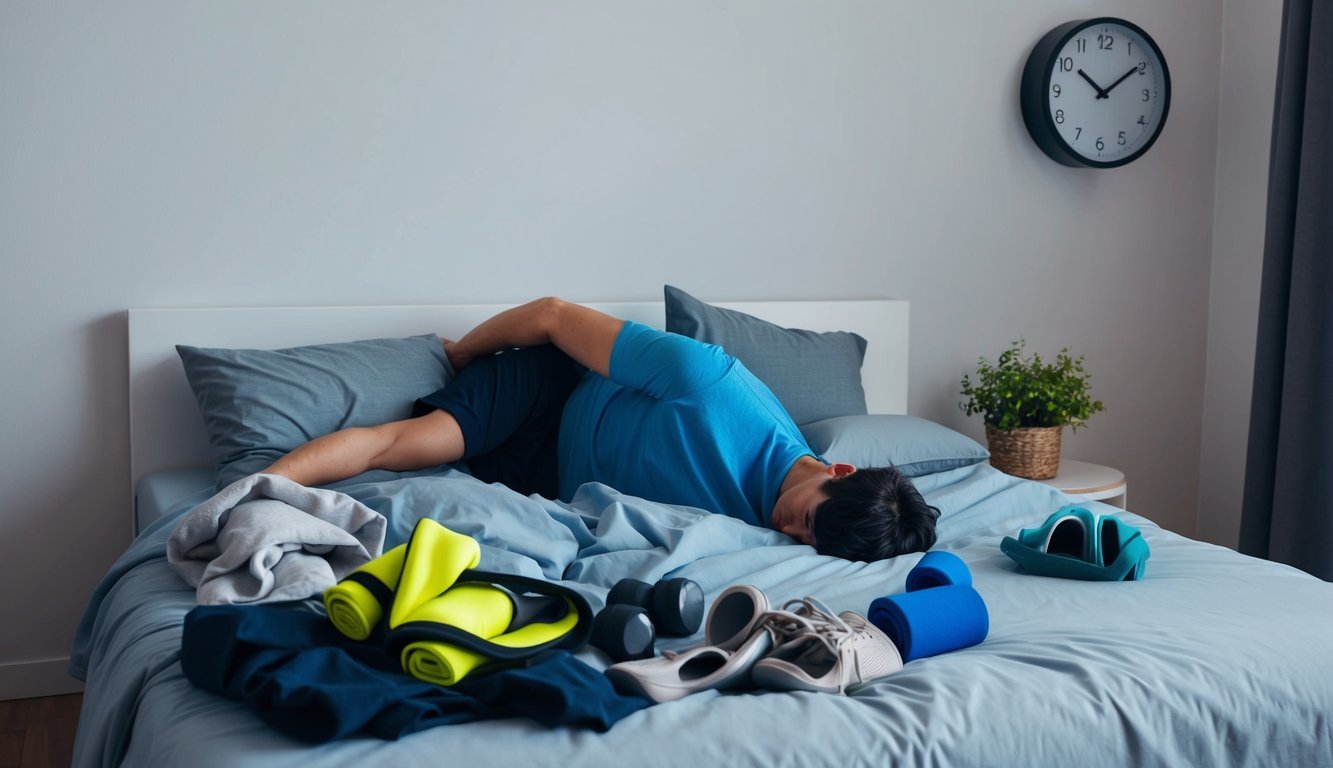
When a person feels tired but struggles to sleep, it may be a sign of inadequate recovery. After intense workouts, the body needs time to heal. If it doesn’t get that, it can affect sleep quality.
High energy levels from exercise can keep the body warm. This increase in body temperature might make falling asleep harder. Even if someone feels exhausted, their body is still alert.
Other factors like stress and anxiety can also play a role. These feelings can arise from pushing too hard in training. It’s important to listen to the body and allow for rest days.
Persistent lack of sleep can lead to more issues. It affects mood, focus, and overall performance. Finding a balance between training and recovery is key for better sleep.

Feeling mood swings or irritability can be a sign of not enough recovery. When the body is tired, it struggles to manage stress and emotions. This can lead to frustration or quick anger.
If someone notices they are more irritable than usual, it might indicate overtraining. Recovery allows the body to repair and balance hormones. Without this, mood can take a hit.
Friends or family may notice changes in behavior. They might see someone getting upset over small things. This can affect relationships and overall happiness.
Listening to these emotional signals is important. Taking a break or adjusting workouts can help improve emotional health. Resting and focusing on recovery can lead to brighter moods and better workouts.
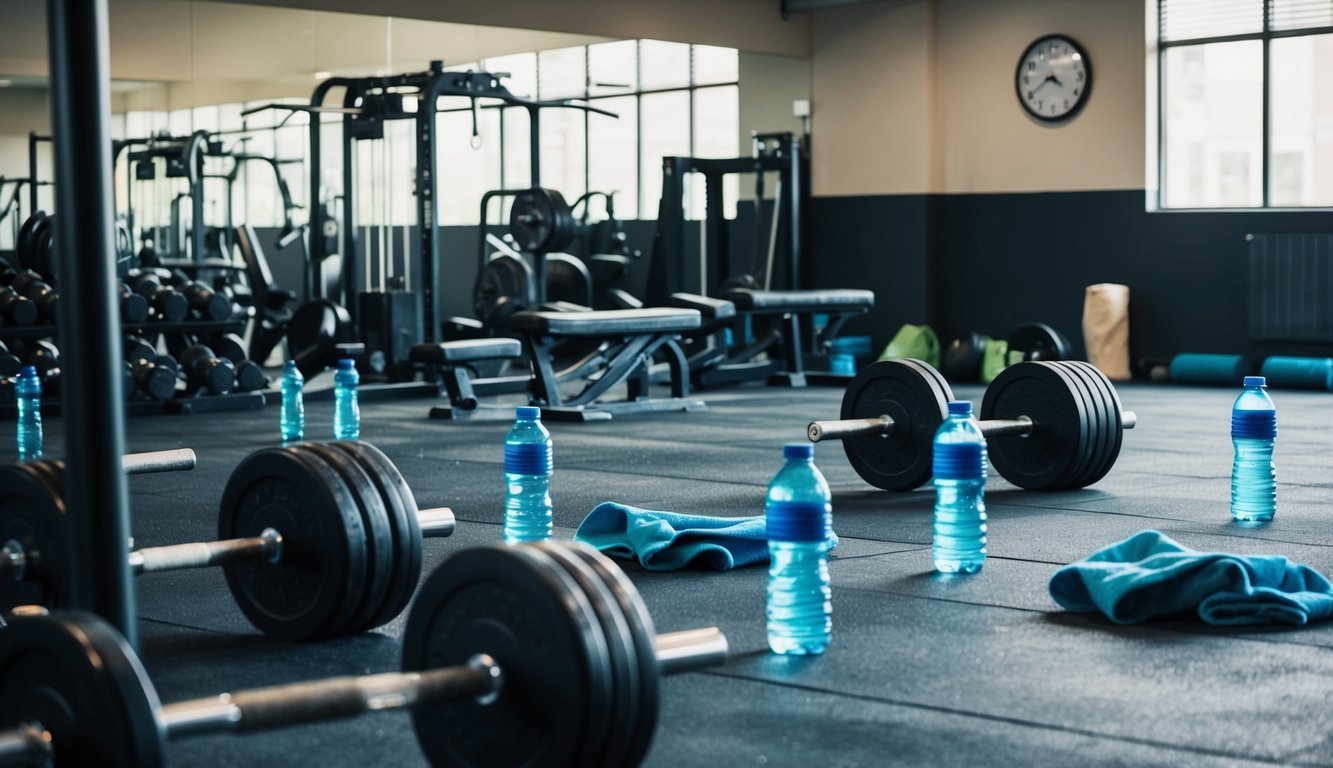
Feeling unmotivated can be a strong sign that someone is not recovering enough between workouts. When rest is not taken seriously, energy levels drop. This can make workouts feel heavy and uninviting.
Apathy may also set in, where the person feels indifferent about exercising. They might lose interest in activities they usually enjoy. This absence of excitement can signal that the body needs a break.
Physical fatigue often contributes to mental fatigue. When tired, they may struggle to find the motivation to train or engage in other activities.
It’s important to listen to these feelings. Taking enough recovery time can help restore motivation and emotional energy. By prioritizing rest, they can return to their workouts feeling refreshed and ready to tackle new challenges.

A loss of appetite can be a sign that the body is not recovering well between workouts. When someone is not getting enough recovery, stress hormones like cortisol may rise. This can affect feelings of hunger.
Changes in eating habits can happen too. Some may eat less due to feeling tired or unmotivated. Others might find themselves reaching for unhealthy snacks instead of nutritious meals.
It is important to pay attention to these changes. Proper nutrition helps the body heal and regain strength. Not eating enough can slow recovery and impact performance in future workouts.
Listening to the body’s signals is key. If someone notices a drop in appetite, they should consider adjusting their workout routine and focus on recovery. This can lead to healthier eating patterns and better overall performance.

When someone doesn’t get enough recovery, they might notice trouble concentrating or focusing. This can be frustrating, especially during daily tasks or workouts.
Lack of rest can lead to brain fog, making it hard to think clearly. They may feel distracted or unable to stay on task.
Their mind might wander frequently, pulling them away from what they are doing. It’s harder to remember details or follow through with plans.
Poor recovery affects brain function just like it affects muscles. Getting enough rest is crucial for maintaining mental sharpness.
If they find it hard to concentrate, it may be a sign to look closer at their recovery routine. More rest days or lighter workouts could help improve focus and clarity.
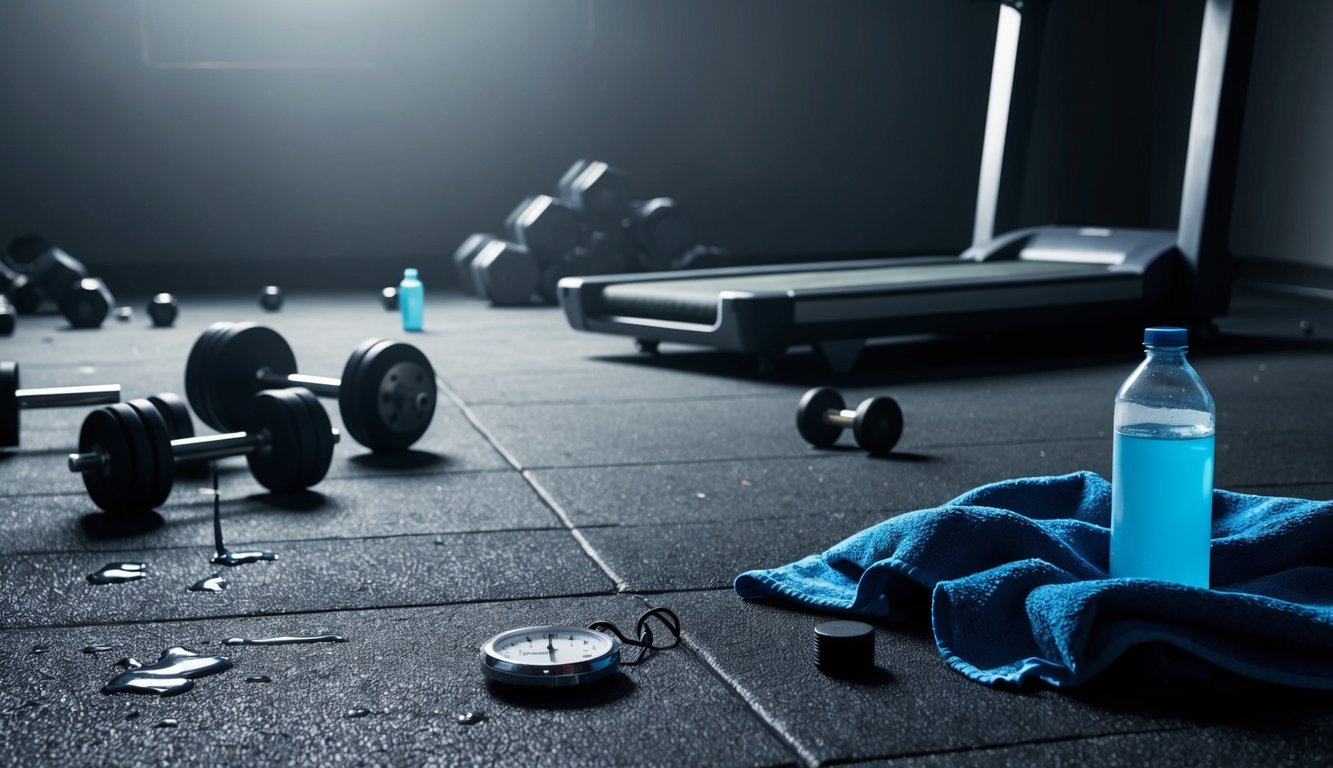
Workout recovery is essential for fitness success. It helps the body repair and grow stronger. When recovery is ignored, it can lead to fatigue and decreased performance. Understanding how muscles recover and why it matters is crucial for anyone committed to their fitness journey.
Muscle recovery involves several physiological processes. After a workout, tiny tears occur in muscle fibers. The body repairs these tears through a process called muscle protein synthesis. This process requires nutrients like protein, carbohydrates, and healthy fats.
Key factors influencing recovery include:
Resting enough and providing the body with the right nutrients helps rebuild muscles effectively. Without adequate recovery, muscle growth slows down, leading to poorer performance and an increased risk of injury.
Adequate recovery improves performance and stamina. If athletes and fitness enthusiasts do not allow their bodies to rest, they may experience fatigue and reduced strength.
Signs of insufficient recovery include:
By understanding the importance of recovery, individuals can adjust their training plans. Focusing on rest days, light activities, or even sleep can enhance overall performance. Prioritizing recovery helps maintain long-term fitness goals and reduces the risk of burnout or injury.

Proper recovery is essential for anyone engaged in physical activity. Nutrition and strategic rest days play key roles in how well the body can recover and prepare for future workouts.
Nutrition plays a crucial role in muscle repair and recovery. After a workout, the body needs a mix of proteins and carbohydrates.
Hydration is also vital. Water helps transport nutrients and aids in muscle function. Aim for at least 8 cups of water a day, and more if exercising intensely.
Snacking after workouts can help too. A simple yogurt with fruit or a protein shake can kickstart recovery. Paying attention to what you eat will help improve performance in the long run.
Rest days are as important as workout days. They allow muscles to rebuild and become stronger.
To make the most of rest days, consider the following:
Plan rest days strategically within workout schedules. For example, if you have a heavy workout week, scheduling a rest day afterward can prevent overtraining. Listening to your body’s signals will ensure a balanced approach to recovery.

Many people wonder about signs of inadequate recovery and how to tell if they are overtraining. Here are some common questions and answers related to recovery between workouts.
Signs of inadequate recovery include persistent fatigue even after rest, prolonged muscle soreness lasting more than 72 hours, and a lack of enthusiasm for workouts. These symptoms might mean the body is not healing properly, which can lead to decreased performance.
Sufficient rest helps the body recover and build strength. In contrast, overtraining shows through constant fatigue, irritability, or even sleep disturbances. It often leads to workouts feeling harder than usual, even with normal effort.
Persistent muscle fatigue can result from not allowing enough time for recovery or pushing too hard during workouts. Underfueling, or not consuming enough nutrients, can also contribute to this fatigue.
Yes, overtraining can affect men and women differently due to biological differences. Women may experience hormonal shifts or mood changes more frequently, while men might face physical performance declines sooner. Both genders should listen to their bodies.
A plateau in performance often occurs when the body doesn’t get enough time to recover. It can also happen due to not changing workout routines or continuously challenging the muscles in new ways.
Long-term insufficient rest can lead to chronic fatigue, decreased immune function, and injuries. It can also negatively impact mental health, leading to outcomes like anxiety or depression.
Taking proper rest is crucial for maintaining overall well-being.